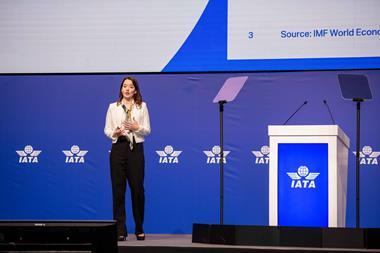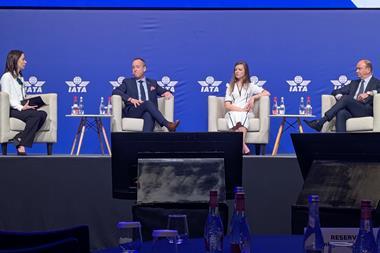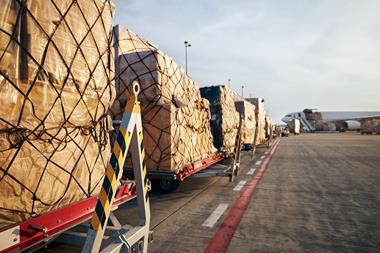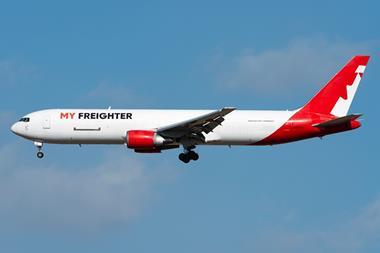Charter broker Air Partner has reported a 50% increase in demand as a result of ocean freight supply chain issues.
Over the last few months the container shipping sector has experienced major supply chain issues due to a box shortage in Asia, a surge in demand and port congestion.
Air Partner chief executive Mark Briffa said: “As a result of issues affecting global shipping at the moment, transporting cargo via sea transportation is proving extremely challenging for businesses and supply chains, so we are experiencing a growing number of enquiries for air charter.
"Currently around 50% of business in our freight division is coming from transporting goods that would usually go via sea transportation. While the main industries turning to air charter are energy, automotive, aerospace and marine, we are also seeing interest from some major UK retailers that want to minimise disruption to their supply chains.”
Some forwarders are hoping that the two week Chinese New Year holiday break - starting February 12 - will give shipping lines and ports the chance to catch up.
In its latest ocean market update, rate portal Freightos' research lead Judah Levine said: "The unrelenting surge of ocean volumes continues to cause port congestion and delays that have plagued the industry since November. Though there are signs that the resulting empty container shortage may be starting to ease, it is unlikely to disappear until demand eases.
"A recent outbreak of Covid-19 infections among LA/Long Beach dock workers may even make the situation worse at the already-overwhelmed port.
"Delays at clogged ports have led carriers to cancel sailings in order to catch up with disrupted schedules, showing how long delays are effectively a removal of future capacity – another factor keeping rates extremely high."
Freightos figures show that prices from China to the US west coast are up by around 180% year on year, to the east coast there is a 103% jump on last year.
Air Partner has also noted an increase in enquiries as a result of the UK leaving the European Union. Briffa explained that navigating and understanding post-Brexit customs protocols for importing and exporting goods via sea or ground transportation to/from the UK is proving "extremely challenging for businesses".
"In the past week we have seen an uptick in enquiries from businesses who had stockpiled goods in the run up to Brexit and are now needing to restock as these supplies are beginning to dwindle. We are preparing for this trend to continue in the coming weeks,” he said.
In January, logistics firm DB Schenker and parcel firm DPD put their road operations between the EU and UK on hold for a few days as the dealt with incorrect or missing paperwork.
Air Charter Service also reported an gradual increase in demand as a result of the stoppages.
Briffa added that demand for Covid-19-related personal protective equipment (PPE) was also starting to pick up again: “Separately, we are experiencing higher demand for requests to transport PPE globally, with most supplies coming from Asia to countries that are preparing for national vaccination programmes which require items such as protective gloves.
"We are well versed in transporting critical freight, having arranged over 300 cargo flights during the onset of the pandemic last year to support the urgent demand for PPE, test kits and other essentials.”















